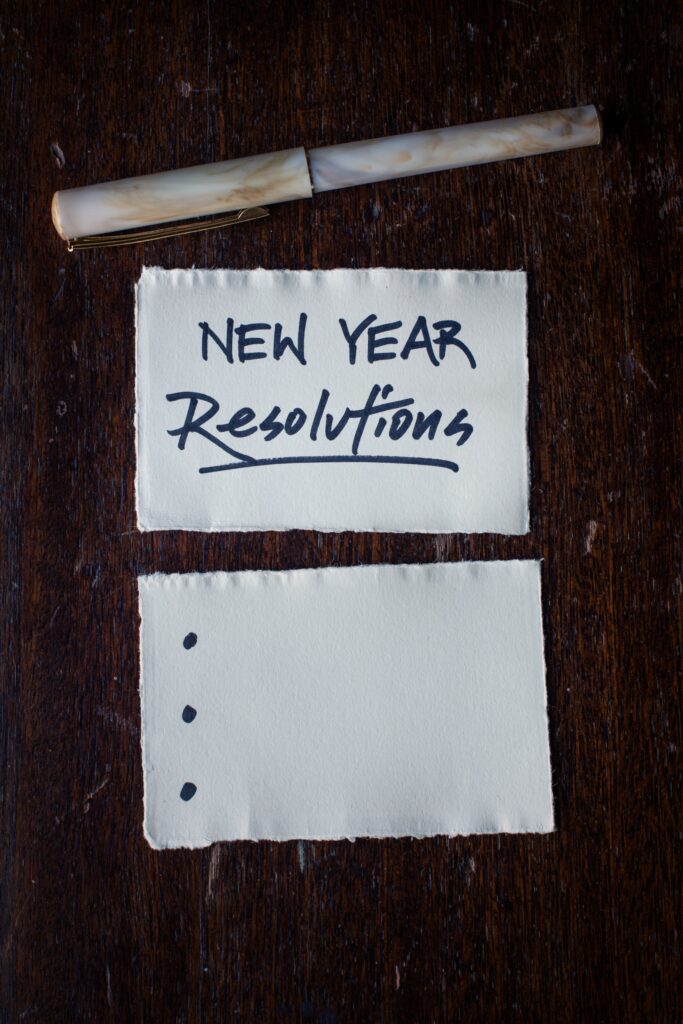Jan 19, 2022
New Year, New You?
Why New Year’s Resolutions Fail
With the ushering in of a new year, we also usher in new hope, new dreams, and for many new year’s resolutions. But what is a resolution exactly? A resolution is an intent to do something. More specifically, a new year’s resolution is a promise to do something differently in the new year. That’s it. Perhaps that’s the reason why saying, “I will lose weight” or “I will exercise” is forgotten by the end of January.
A 2020 YouGov.com survey shows about one in four Americans (27%) say they made resolutions for 2020, and slightly more (31%) said they intended to make resolutions for 2021. However, studies have shown more than half of all resolutions fail. Most are abandoned by mid-January. Here’s why:
- It’s a resolution created based on what someone else, e.g., a friend, co-worker, or society, including social media, is telling you to do or change
- It’s too vague
- You don’t have a realistic plan for achieving your resolution
Choosing a goal that doesn’t reflect your interests and passions sets you up to abandon them. These failures mostly come in the form of diet and exercise.
So, what should you do instead of making New Year’s resolutions? Consider setting smaller, more achievable goals. If it’s weight loss, instead of saying, “I will lose 70 pounds this year,” try to lose 1.5 pounds a week. Divide your goal into time segments and ask yourself what you will do each day to move closer to your goal. Then, at the end of every week, assess what you’ve accomplished.
Real change takes time, effort, and patience. To stay motivated, it is essential to celebrate the smallest positive changes.
Melinda Gates, co-founder of the Bill and Melinda Gates Foundation, chooses a word of the year instead of making a new year’s resolution. Still resolving to do something different with the start of each year, she lets a single word be her guidance.
In a 2019 LinkedIn© post, Gates explained that the tradition “encapsulates her aspirations for the year ahead.” Past words have included “gentle,” helping her fight perfectionism, and “spacious,” prompting her to make room for the things in life that really matter.
Say you choose “health” as your word of the year. Instead of getting bogged down with diet and exercise, you will be able to ask yourself if what you’re doing each day aligns with your yearly theme.
Other words you can choose are gratitude, calm, or creativity. These words help you move through your day with intention and positivity.
When you set goals, make sure they center around things you want to accomplish. Don’t think of it as being selfish; when you achieve a goal you set for yourself, you’re happier and less stressed.
There’s nothing magical about January. People tend to push themselves into thinking of something to do differently by the start of a new year without really putting a lot of thought into it. Truth is, you can set goals for yourself any time of the year, in February, April, or September. The key is to think about whether you’re ready to change your habits and lifestyle. You’ll have a better chance of success if you work on your mindset first.

By: Danielle Barnes – @dannibsays (IG) @dannib413 (Twitter)
Danielle Barnes is a freelance writer based in Montclair, NJ. She earned a Bachelor of Arts degree in Public Relations from Wayne State University. Her superpower is her ability to captivate audiences with her words whether it’s in person or on paper. Danielle enjoys devouring a good book, volunteering for causes she’s passionate about, staying active, and traveling the globe to see the world in all its glory.

